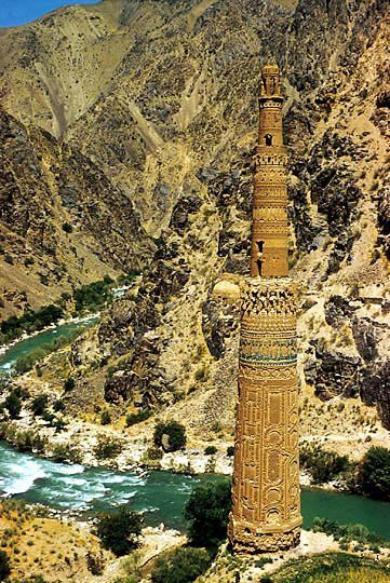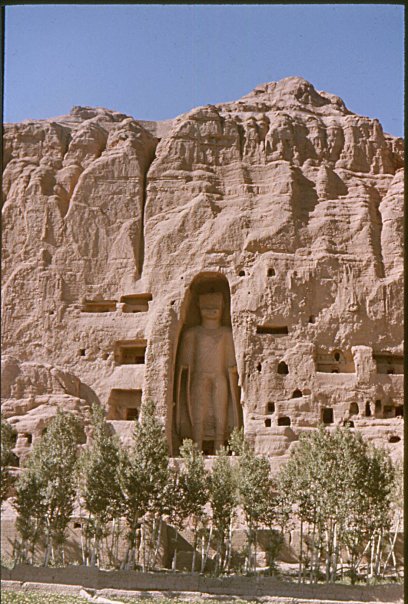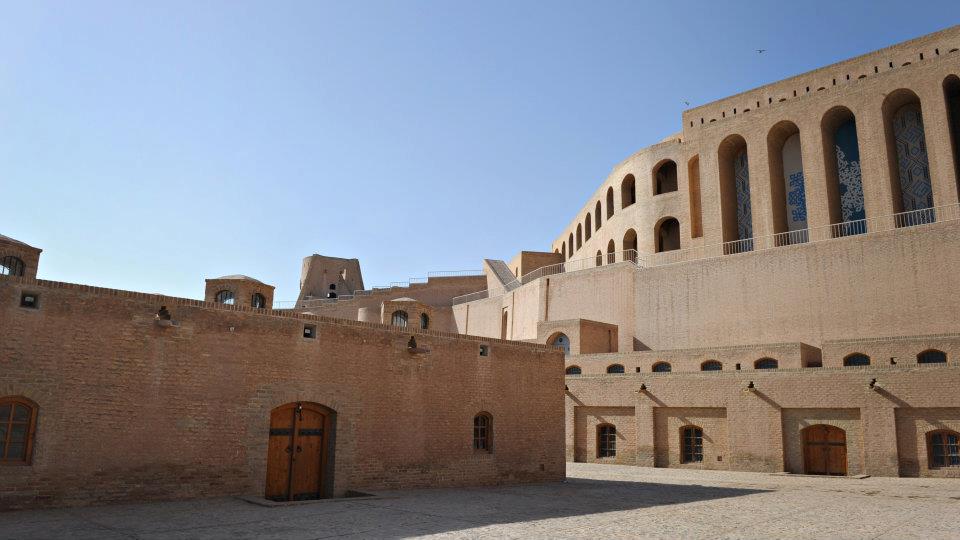Afghanistan officially the Islamic Republic
of Afghanistan, is a landlocked country
located in the centre of Asia,
forming part of South Asia, Central Asia, and Greater Middle East, it is also considered to
be part of a broader West Asia. With a population of about 29 million, it has an
area of 647,500 km2 (250,001 sq mi), making it the 42nd Afghanistan has been an ancient focal point of the Silk Road and human migration. Archaeologists have found evidence of human habitation from as far back as 50,000 BC. Urban civilization may have begun in the area as early as 3,000 to 2,000 BC. Sitting at an important geostrategic location that connects the Middle East with Central Asia and the Indian subcontinent, the land has been home to various peoples through the ages and witnessed many military campaigns, notably by Alexander the Great, Genghis Khan, and in modern era Western forces. The land also served as a source from which the Greco-Bactrians, Kushans, Saffarids, Ghaznavids, Ghorids, Timurids, Mughals and many others have risen to form major empires.[15] The political history
of the modern state of Afghanistan begins in 1709 with the rise of the Pashtuns,
when the Hotaki dynasty was established in Kandahar
followed by Ahmad Shah Durrani's rise to power in 1747. In
the late 19th century, Afghanistan
became a buffer state in the "Great Game"
between the British and Russian
empires. Following the Third Anglo-Afghan War of 1919 and the
signing of the Treaty of Rawalpindi, King Amanullah
started modernization of the country. During the Cold War,
after the withdrawal of the British from neighboring India
in 1947, the United States
and the Soviet Union began spreading their influence in Afghanistan.[19]
Between 1979 and 1989, the country experienced a major war between the US-backed mujahedeen
forces and the Soviet-backed Afghan government in which over a million Afghans
lost their lives mainly due to land-mines. This was followed by the 1990s Afghan civil war,
the rise and fall of the extremist Taliban government and the 2001-present war. In December 2001, the United Nations Security Council authorized
the creation of the International Security Assistance
Force (ISAF) to help maintain security in Afghanistan and assist the
Karzai administration.
The decades of war made Afghanistan the world's most dangerous country, including the largest producer of refugees and asylum seekers. While the international community is rebuilding war-torn Afghanistan, terrorist groups such as the Haqqani Network and Hezbi Islamiare actively involved in a nationwide Taliban-led insurgency, which includes hundreds of assassinations and suicide attacks. According to the United Nations, the insurgents were responsible for 75% of civilian casualties in 2010 and 80% in 2011. افغانستان: پښتو:
د افغانستان اسلامي
جمهوريت, فارسي (دري):
جمهوری اسلامی
افغانستان) په غرونو کې کلابند يو هېواد دی چې د اسيا د لوې وچې په څلورلاره کې
پروت دی. په ټولګړې توګه دا هېواد د منځنۍ اسيا يوه
برخه ده، خو کله ناکله بيا په داسې سيمې څرګند شوی چې نه په منځني ختيځ
او نه پر سوېلي اسيا پورې تړلې ده، او دا پدې چې دغه سيمه د منځني ختيځ
او سوېلي اسيا سره فرهڼيز، ژب توکم ددغو ناخوالو په پايله کې اوس افغانستان د بيا ودانېدو په لورې روان دی، دا يوه داسې هڅه ده چې د اوږدمهالې جګړې او د هغه ويجاړيو چې د کلونو کلونو وسله والو نښتو په نتيجه کې منځ ته راغلې ځواب ووايي او همدا نوی حکومت هم د ملت په يووالي کې او د هېواد د بيا جوړولو په درشل کې خپل ګامونه پورته کړي، خو لا تر اوسه پورې نه دی بريالی شوی چې په هېواد کې په بشپړه توګه امن او ورورګلوي راولي. افغانستان د خورا ډېرو ستونزو
سره مخامخ دی، د نړېدلي اقتصادي نظام نه رانيولې، د ميلونونو مهاجرينو د
بېرته ستنېدو پورې، د مخدره توکو قاچاق، د جنګسالارانو شته والی او په شته
حکومت کې د بېلابېلو سياسي ګوندونو مخالفتونه، دا ټول هغه لاملونه
دي چې د اوسمهال حکومت ورسره لاس او ګرېوان دی او همدا ټولې ستونزې دي چې د
يويشتمې پېړۍ د افغانستان څرګندونه کوي
|
    Translate This Page |

 يز او جغرافيکي اړيکې لري. دا هېواد
يز او جغرافيکي اړيکې لري. دا هېواد